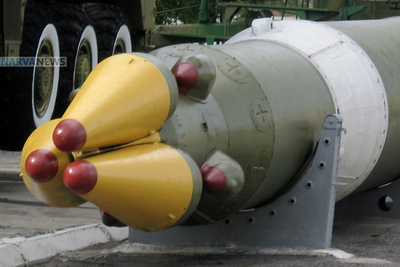
The test of the Russian medium-range ballistic missile "Oreshnik," equipped with a hypersonic warhead, has drawn significant attention from NATO. The alliance is closely examining statements made by Russian leadership, including President Vladimir Putin, as well as the missile's reported technical specifications. As of now, NATO has not issued any official comments or concrete statements regarding the "Oreshnik," but internal analysis of the situation is actively underway. It is likely that NATO headquarters in Brussels is already studying information about the launch. Military experts and analysts are assessing the potential impact of the new Russian weapon on the strategic balance of power, particularly in light of claims that the missile can bypass modern missile defense systems. The characteristics reported by the Russian side, especially its hypersonic speed and maneuverability, have made the "Oreshnik" a focal point of interest in the field of missile defense and NATO’s countermeasures, though Western experts are divided on the details. Experts from Defense Express suggest that "Oreshnik" may be a rebranded version of the previously known RS-26 "Rubezh" missile. They note that the Kremlin's practice of using different names for weapons systems is not unusual and often aims to create the impression of "new capabilities" in the Russian military. Similar strategies have been observed before, such as with the Kh-101 cruise missile, which is also referred to as "Item 504." Analysts believe this may be part of an information campaign designed to intimidate Western nations. CNN reports that Russia may possess only a limited number of such experimental missiles. Furthermore, Washington had previously warned Ukrainian authorities and allies about the potential deployment of such weapons, emphasizing that their destructive power is significantly lower than the warheads Ukraine has already endured. NATO allies, including the United States and European nations, are also discussing the possible strategic implications of this launch. Particular attention is being given to the context of the test, including Russia's claims that it was a response to U.S. plans to produce and deploy medium-range missiles, as well as Ukraine's use of Western weaponry. At this stage, NATO’s position revolves around analyzing the available data, assessing risks to member states' security, and potentially reconsidering defense strategies for its eastern flank. Such developments traditionally spark deeper discussions about the need to modernize defense systems, including missile defense. The alliance underscores the importance of maintaining unity among NATO members in the face of emerging challenges and regional tensions. It is evident that the "Oreshnik" test will be a key topic at upcoming NATO leadership meetings and in consultations with the alliance’s critical partners. | |
|
| |
| Total Comments: 0 | |